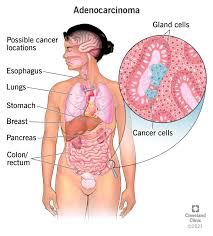Uncategorized
Navigating the Landscape of Cancer in Canada: Insights, Challenges, and Progress

Introduction:
Cancer is a significant health concern in Canada, affecting millions of individuals and families across the country. Despite advancements in research, prevention, and treatment, cancer remains a leading cause of morbidity and mortality nationwide. This article aims to provide an overview of the current state of cancer in Canada, including key statistics, common types of cancer, prevention efforts, advancements in treatment, and challenges facing cancer care.
Overview of Cancer Incidence and Mortality:
Cancer incidence and mortality rates in Canada reflect global trends, with a substantial burden of disease on individuals, families, and the healthcare system. According to the Canadian Cancer Society, an estimated 225,800 new cancer cases will be diagnosed in Canada in 2024, with approximately 83,300 cancer-related deaths expected to occur. These statistics underscore the urgency of addressing cancer as a public health priority in Canada.
Common Types of Cancer:
Similar to other developed countries, Canada experiences a high prevalence of various cancer types. Among the most commonly diagnosed cancers in Canada are breast cancer, lung cancer, colorectal cancer, prostate cancer, and bladder cancer. Each type presents unique challenges in terms of prevention, early detection, and treatment.
Risk Factors and Prevention:
Many risk factors for cancer are modifiable, emphasizing the importance of preventive measures and lifestyle interventions. Tobacco use, unhealthy diet, physical inactivity, excessive alcohol consumption, and exposure to environmental carcinogens are among the primary risk factors for cancer in Canada. Public health campaigns, tobacco control policies, and initiatives promoting healthy lifestyles play a crucial role in cancer prevention efforts.
Screening and Early Detection:
Early detection is key to improving cancer outcomes, as it allows for timely intervention and treatment. Canada has national and provincial screening programs for various cancers, including breast, cervical, and colorectal cancer, aimed at detecting cancer at an early stage when treatment is most effective. However, disparities in access to screening services and healthcare resources exist, highlighting the need for targeted interventions to address barriers to early detection.
Advancements in Treatment:
In recent years, significant advancements have been made in cancer treatment modalities, leading to improved outcomes for patients in Canada. Targeted therapies, immunotherapy, and precision medicine have revolutionized cancer care, offering new hope for individuals with advanced or hard-to-treat cancers. Additionally, supportive care measures and palliative care services have enhanced the quality of life for cancer patients and their families.
Challenges in Cancer Care:
Despite progress in cancer research and treatment, several challenges persist in the delivery of cancer care in Canada. Access to specialized cancer services, particularly in remote and underserved areas, remains a concern. Additionally, the high cost of cancer drugs and treatments poses financial burdens for patients and healthcare systems alike. Addressing these challenges requires collaborative efforts to improve access, equity, and affordability in cancer care delivery.
The Role of Research:
Research is instrumental in driving advancements in cancer prevention, diagnosis, and treatment in Canada. The Canadian Cancer Research Alliance, along with government agencies, academic institutions, and nonprofit organizations, supports research initiatives aimed at understanding the biology of cancer, developing innovative therapies, and improving cancer prevention and control efforts. Continued investment in cancer research is essential for translating scientific discoveries into clinical practice and improving outcomes for individuals affected by cancer.
Community Engagement and Advocacy:
Community engagement and advocacy play a vital role in raising awareness, reducing stigma, and mobilizing resources to address cancer in Canada. Cancer survivors, caregivers, healthcare professionals, researchers, and advocacy organizations collaborate to advocate for policy changes, promote early detection initiatives, and support individuals affected by cancer. Grassroots initiatives, fundraising events, and support groups provide avenues for individuals to connect, share experiences, and access information and resources to navigate their cancer journey.
The Impact of COVID-19:
The COVID-19 pandemic has had a profound impact on cancer care and management in Canada. Disruptions to healthcare services, delays in cancer screening and diagnosis, and changes in treatment protocols have affected cancer patients and healthcare systems nationwide. The need to balance the risks of COVID-19 transmission with the imperative to provide timely and appropriate cancer care underscores the importance of adaptive and resilient healthcare systems in Canada.
Looking Ahead:
As Canada continues to address the complex challenges of cancer care, collaboration, innovation, and a commitment to equity will be essential for driving progress and improving outcomes for individuals affected by cancer. By investing in research, strengthening healthcare systems, promoting preventive measures, and supporting community engagement and advocacy efforts, we can work towards a future where cancer is no longer a leading cause of suffering and premature death in Canada. Together, we can build a more resilient, equitable, and compassionate healthcare system that meets the needs of all those affected by cancer and promotes health and well-being for generations to come.
Conclusion:
Cancer remains a











